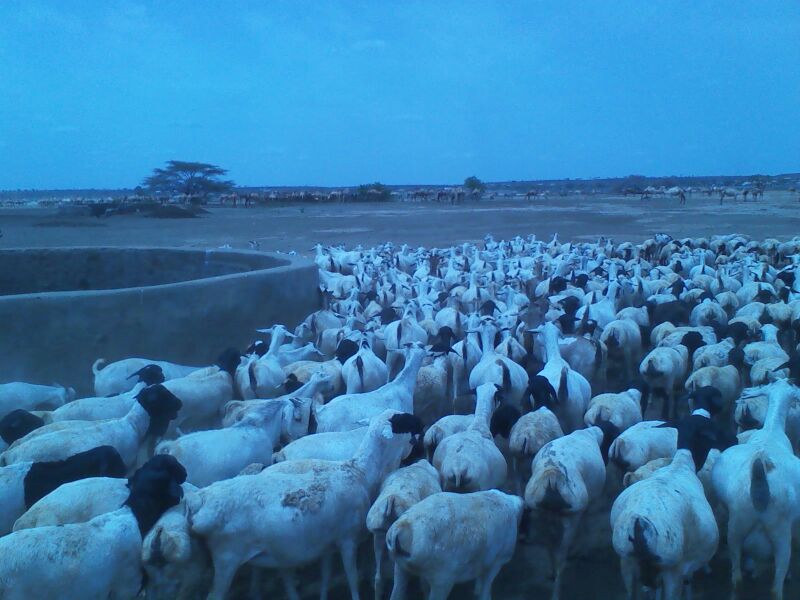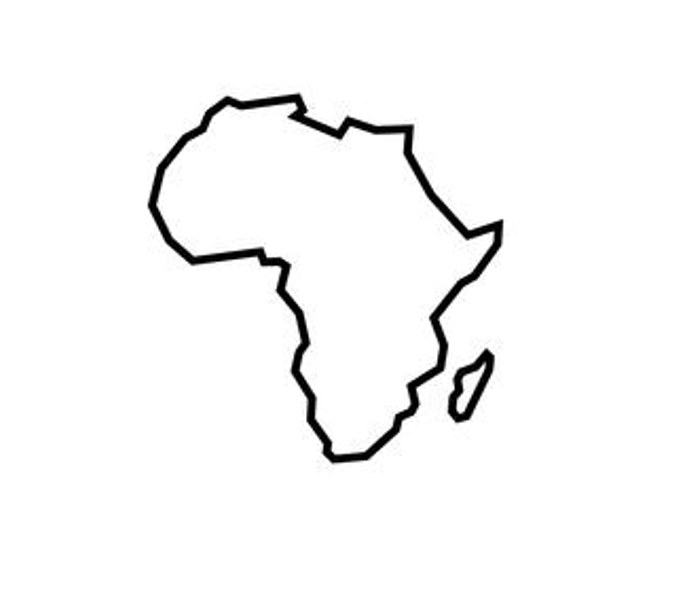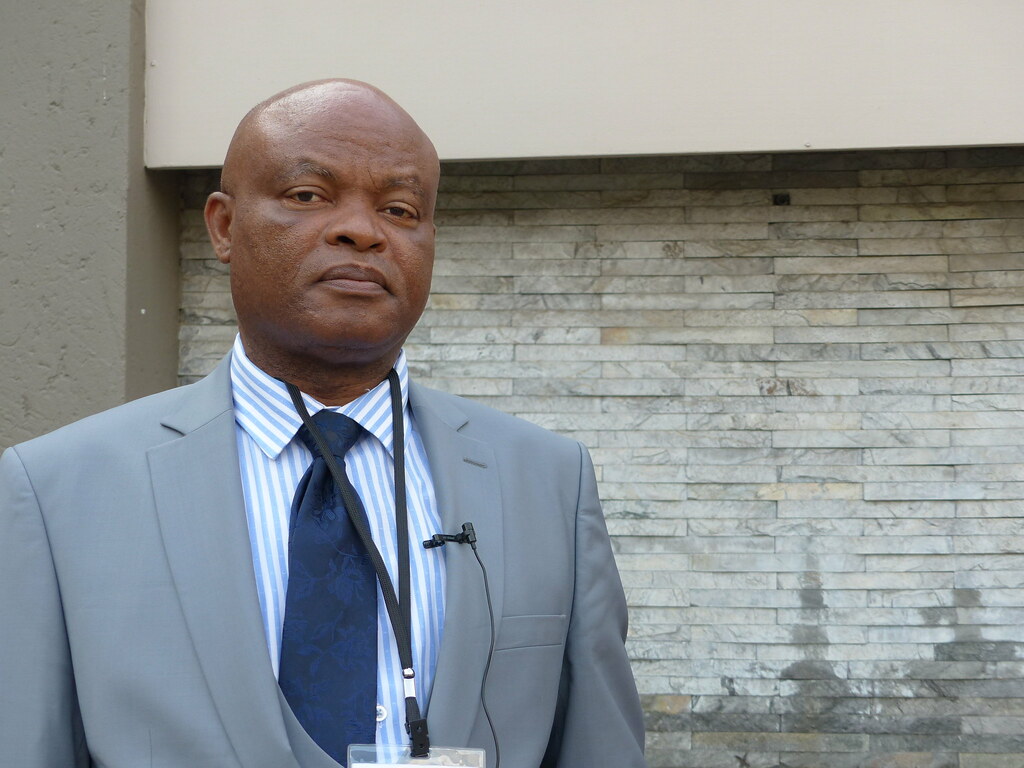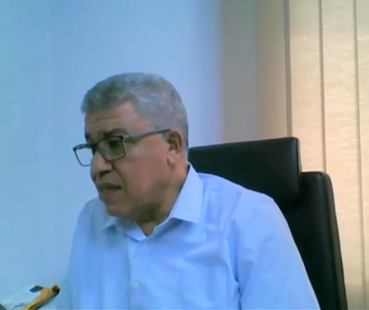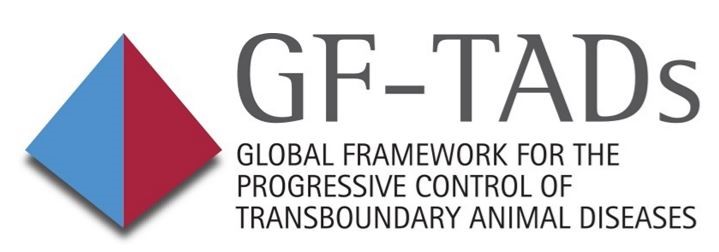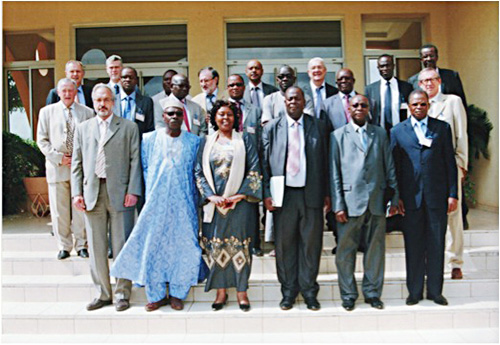
The meeting was attended by up to 10 out of the 18 voting members, up to 7 out of the 9 non-voting members, along with additional representatives of regional specialised organisations, regional support units, technical and funding partners and the private sector.
The meeting was held in 6 sessions which attracted up to 57 participants.
Session 1. Welcoming remarks
Session 2. Governance aspects
Presentation of the GF-TADs global website
Session 3. Reporting on GF-TADs global disease control and eradication initiatives – 100 min.
Session 4. Other GF-TADs ‘tools’ achievements and One Health in Africa – 60 min.
Presentation of the GF-TADs Africa website
Session 5. GF-TADs for Africa Regional Strategy 2021 – 2025 – 100 min.
Session 6. Adoption of recommendations and closing remarks – 60 min.
The OIE Regional Representative for Africa and Secretary of the GF-TADs for Africa, Dr Karim Tounkara, chairman of the session, welcomed the steering committee and wished for good deliberations. He reminded the audience that the last of such GF-TADs meetings was held in 2014 in Ouagadougou, Burkina Faso, hence the need for the current meeting. He introduced three key speakers, Dr Nick Nwankpa, the Acting Director/Head of Mission, African Union Interafrican Bureau for Animal Resources (AU-IBAR) on behalf of Ambassador Josefa Sacko, Commissioner for Agriculture, Rural Development, Blue Economy and Sustainable Environment of the African Union Commission, AU-ARBE, Dr Abebe Haile-Gabriel, the Assistant Director-General, Regional Representative for Africa, Food and Agriculture Organization of the United Nations (FAO) and Dr Monique Eloit, Director General, World Organisation for Animal Health (OIE).
Dr Nick Nwankpa, acting Director of AU-IBAR, Director of AU-PANVAC and new Chairperson of the GF-TADs for Africa. Picture (c) P. Bastiaensen (oie) 2017.
In his opening statements, Dr. Nick Nwankpa stressed the weak veterinary infrastructure in Sub-Saharan Africa, and how transboundary animal diseases (TADs) and zoonoses have militated against the development of the livestock development. He also emphasized the recent policy documents facilitated by the AU-IBAR, which are aligned to OIE global frameworks that should contribute to the development of livestock sector. He called for a quarterly coordination meeting between the AU-IBAR, the FAO and the OIE, including other strategic continental stakeholders to tackle continental animal health challenges.
Dr Haile-Gabriel Abebe concluded that TADs have increased poverty in Africa, and that the meeting is strategic because a more effective control of TADs and priority zoonoses is long overdue. He used the occasion to emphasise the contributions of FAO to animal health and production in Africa, and concluded that the Regional Strategy, 2021 – 2025, is a common vision that should guide important stakeholders in Africa towards the control of priority diseases in the region.
Dr Monique Eliot, while thanking all participants, advocated for shared work plans between agencies and organizations, in order to bridge overlapping areas of works in the livestock sector in Africa. She concluded that COVID-19 should be seen as an additional opportunity to leverage on efforts at prevention and control. Finally, she reiterated the commitment of all as important for continued collaboration.
Dr. Karim Tounkara, Secretary of the Regional Secretariat of the GF-TADs for Africa, following the adoption of the terms of reference by the voting Members, and as per article 2.1. of the just adopted terms of reference introduced the proposed names and affiliations of the new Bureau of the RSC, consisting of:
Following endorsement of the Bureau, the Secretary of the Regional Secretariat of the GF-TADs for Africa handed over the Chairpersonship to the new Chair of the GF-TADs for Africa, Dr Nick Nwankpa of AU-IBAR.
The remainder of the meeting was dedicated to (other) governance issues and technical presentations and discussions, based on the below presentations, delivered by relevant experts and eminent scientists :
PDF - 2.52MB
PDF - 1.27MB
Day three of the meeting (8 October) was largely dedicated to the presentation, discussion and adoption of the 2021 – 2025 Regional Strategy of the GF-TADs for Africa.
The Chair introduced the GF-TADs Regional Strategy 2021-2025 and then requested Dr Patrick Bastiaensen (OIE, on behalf of the GF-TADs Regional Secretariat) to briefly present the draft strategy. Dr Bastiaensen made a presentation, focusing on objectives, and global priority diseases of regional importance. The priority diseases under GF-TADS of regional importance are as follows:
Discussion in break-out rooms (according to language, deliberations in plenary and adoption of the Regional Strategy
The Chair then introduced the break-out session into two groups (French speaking and English-speaking) to brainstorm on two topics; one on the four objectives of GF-TADS Regional Strategy 2021-2025, and another one to critically review the actions plans for PPR, ASF and CBPP.
The Chair later also facilitated the discussions from the rapporteurs of both break-out rooms. The groups suggested some changes on the draft strategy and referred them to the secretariat for incorporation in the strategy document.
The GF-TADs for Africa Regional Strategy 2021 – 2025 was later adopted by electronic voting of 12 Voting Members with 100% approval rate on 28 October 2021.
The GF-TADs for Africa RSC-10 proposed that the next meeting could be organised back-to-back with the annual AU African CVOs’ meeting in Nairobi (in the course of April or May 2022). If the sanitary situation allows, a physical meeting will be organised, otherwise it will hold a virtual meeting.
Representatives of all the Member organisations and country representatives thanked the Chairperson, Dr Nick Nwankpa, for his excellent chairpersonship and expressed their appreciation at the relaunch of the GF-TADs regional mechanism on the African continent, suspended since 2014.
Dr Mohammed Bengoumi, FAO Sub-Regional Representative for north Africa, also representing the REMESA, during the feedback session from the break-out groups (rapporteur).
